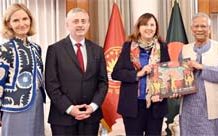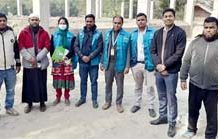C T Online Desk: Ineffective and sold-out trade unions are the key obstacle to protecting interests of the workers in the country, said labour leaders and trade union experts.
The number of trade unions, they observed, has increased in Bangladesh over the years on paper but effective trade unionism remains absent in the country as most of the unions practically protect interests of political parties or national and international NGOs.
According to labour leaders and experts, the ruling party’s control over trade unions, their undesirable relationship with non-governmental organisations and legal barriers adversely impact real trade unionism.
Since the early 1990s, trade union leaders have mostly been serving the purposes of ruling political parties instead of protecting interests of the working class, labour leaders alleged.
They also pointed out that the number of trade unions, especially in the apparel sector, had considerably gone up in the country due to the pressure from the international community after the Rana Plaza building collapse at Savar in 2013.
Political pressure in and an undemocratic way of choosing union leaders are also blamed for hampering a healthy growth of trade union movement in the country.
‘In fact, the trade union movement in the country has gone astray gradually. We started the movement in the 1960s and it was on a right track until the end of the 1980s. But we have later lost the continuation of a strong movement due to many divisions in it,’ veteran labour leader Shahidullah Chowdhury told New Age on 22 April.
Up until the late 1980s, left-leaning parties were the driving force behind the country’s trade union movement and the contribution of workers in the anti-autocracy movement was also remarkable, he said.
After the overthrow of military dictator HM Ershad in 1990, Shahidullah said, the worker wings of the Awami League and the BNP came to the forefront.
During the BNP regime, its worker wing Sramik Dal became the country’s largest labour organisation while during the Awami League rule its worker front Sramik League emerged as the largest labour entity, he said.













